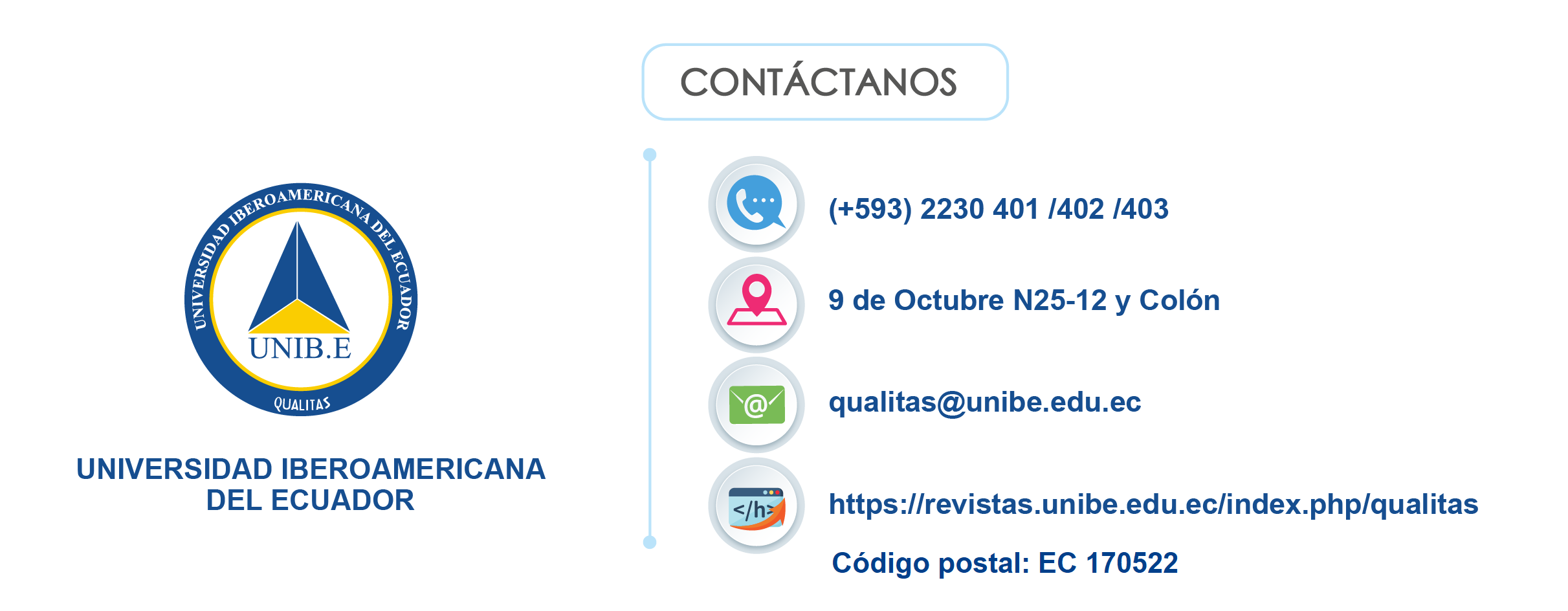Impact of digital technologies on learning and teaching in educational environments
DOI:
https://doi.org/10.55867/qual28.04Keywords:
digital technologies, learning, teaching, digital divide, digital SkillsAbstract
The study focused on analyzing the impact of digital technologies on learning and teaching within educational environments, seeking to identify best practices and strategies for their implementation. A mixed approach was used, applying a survey to 481 participants to evaluate perceptions about the use of digital technologies in education. The results revealed a generally positive perception towards these technologies, highlighting their potential to enrich the educational process. However, challenges related to the digital divide and unequal access to technological resources were identified. The research highlighted the importance of developing digital competencies and adapting pedagogical strategies to maximize the educational potential of digital technologies. The conclusions emphasize the need for educational policies and support strategies that promote equitable access to digital technologies, contributing to closing the digital divide and guaranteeing inclusive and equitable education for all students.
Downloads
References
Acosta Faneite, S. F. (2023). Los enfoques de investigación en las Ciencias Sociales. Revista Latinoamericana Ogmios, 3(8), 82–95. https://doi.org/10.53595/rlo.v3.i8.084
Angulo Guerrero, R. J., Mesías Simisterra, Ángel E. ., y Olmedo Ponce, J. D. . (2021). Impacto de nuevas tecnologías en la educación universitaria en Ecuador. Revista Qualitas, 23(23), 012 -021. https://doi.org/10.55867/qual23.02
Alenezi, A. (2020). The role of e-learning materials in enhancing teaching and learning behaviors. International Journal of Information and Education Technology, 10(1), 48-56. doi: 10.18178/ijiet.2020.10.1.1338
Blancafort, C., González, J., Sisti, O., y Rivera-Vargas, P. (2019). El aprendizaje significativo en la era de las tecnologías digitales. Pedagogías emergentes en la sociedad digital, 1, 49-60. https://www.researchgate.net/profile/Pablo-Rivera-Vargas-2/publication/333093162_EL_APRENDIZAJE_SIGNIFICATIVO_EN_LA_ERA_DE_LAS_TECNOLOGIAS_DIGITALES/links/5cdb3680a6fdccc9ddae3bb6/EL-APRENDIZAJE-SIGNIFICATIVO-EN-LA-ERA-DE-LAS-TECNOLOGIAS-DIGITALES.pdf
Bernate, J. A., y Fonseca, I. P. (2023). Impacto de las Tecnologías de Información y Comunicación en la educación del siglo XXI: Revisión bibliométrica. Revista de ciencias sociales, 29(1), 227-242. https://dialnet.unirioja.es/servlet/articulo?codigo=8822438
Coll Salvador, C., Díaz Barriga Arceo, F., Engel Rocamora, A., y Salinas Ibáñez, J. M. (2023). Evidencias de aprendizaje en prácticas educativas mediadas por tecnologías digitales. RIED. Revista iberoamericana de educación a distancia. https://hdl.handle.net/11162/252776
Clark-Wilson, A., Robutti, O., y Thomas, M. (2020). Teaching with digital technology. Zdm, 1-20. https://link.springer.com/article/10.1007/s11858-020-01196-0
de Pablos Pons, J. (2018). Las tecnologías digitales y su impacto en la Universidad. Las nuevas mediaciones. RIED. Revista Iberoamericana de Educación a Distancia, 21(2). https://www.redalyc.org/articulo.oa?id=331455826006
García Gutiérrez, J., y Ruiz Corbella, M. (2020). Aprendizaje-servicio y tecnologías digitales: un desafío para los espacios virtuales de aprendizaje. RIED. Revista Iberoamericana de Educación a Distancia. http://hdl.handle.net/11162/194603
Haleem, A., Javaid, M., Qadri, M. A., y Suman, R. (2022). Understanding the role of digital technologies in education: A review. Sustainable Operations and Computers, 3, 275-285. https://doi.org/10.1016/j.susoc.2022.05.004
Hernández, R. M. (2017). Impacto de las TIC en la educación: Retos y Perspectivas. Propósitos y Representaciones, 5 (1), 325-347. Revista de psicología educativa USIL. https://dialnet.unirioja.es/servlet/articulo?codigo=5904762
Johnson, L., Levine, A., Smith, R., y Smythe, T. (2009). NMC Horizon Report: 2009 K-12. New Media Consortium. https://www.learntechlib.org/p/182031/.
López-Neira, L. R. (2017). Indagación en la relación aprendizaje-tecnologías digitales. Educación y educadores, 20(1), 91-105. https://www.redalyc.org/pdf/834/83449754005.pdf
Mercader, C., y Gairín, J. (2020). University teachers' perception of barriers to the use of digital technologies: the importance of the academic discipline. International Journal of Educational Technology in Higher Education, 17(1), 4. https://link.springer.com/article/10.1186/s41239-020-0182-x
Otzen, T., y Manterola, C. (2017). Técnicas de Muestreo sobre una Población a Estudio. International journal of morphology, 35(1), 227-232. http://dx.doi.org/10.4067/S0717-95022017000100037
Polo-Rojas, N. D., Ligaretto-Feo, R., y Quiróz-Cárdenas, N. (2023). Aprendizaje basado en proyectos: comunicación en enseñanza mediada por TIC. Magis, Revista Internacional de Investigación en Educación, 16, 1-30. https://revistas.javeriana.edu.co/index.php/MAGIS/article/view/33831/29306
Qureshi, M. I., Khan, N., Raza, H., Imran, A., y ismail, F. (2021). Digital Technologies in Education 4.0. Does it Enhance the Effectiveness of Learning? A Systematic Literature Review. International Journal of Interactive Mobile Technologies (iJIM), 15(04), pp. 31–47. https://doi.org/10.3991/ijim.v15i04.20291
Ramírez Montoya, M. S., McGreal, R., y Obiageli Agbu, J. F. (2022). Horizontes digitales complejos en el futuro de la educación 4.0: luces desde las recomendaciones de UNESCO. RIED. Revista Iberoamericana de Educación a Distancia. https://doi.org/10.5944/ried.25.2.33843
Saykili, A. (2019). Higher education in the digital age: The impact of digital connective technologies. Journal of Educational Technology and Online Learning, 2(1), 1-15. https://doi.org/10.31681/jetol.516971
Taboada, M. B. (2023). Educación, tecnologías y agencias en tiempos de virtualidad forzada. Magis, Revista Internacional de Investigación en Educación, 16, 1-23. https://doi.org/10.11144/Javeriana.m16.etat
Vargas-Murillo, G. (2020). Estrategias educativas y tecnología digital en el proceso enseñanza aprendizaje. Cuadernos Hospital de Clínicas, 61(1), 114-129. http://www.scielo.org.bo/scielo.php?pid=S1652-67762020000100010&script=sci_arttext
Zambrano Romero, W. J., y Meza Hormaza, J. A. (2022). Impacto de las tecnologías disruptivas en el proceso de enseñanza-aprendizaje: caso UTM online. Revista Científica UISRAEL, 9(1), 29-47. https://doi.org/10.35290/rcui.v9n1.2022.513.
Published
How to Cite
Issue
Section
License
Copyright (c) 2024 Italo Enrique Zambrano Mera, Leonardo Chancay García

This work is licensed under a Creative Commons Attribution 4.0 International License.



















